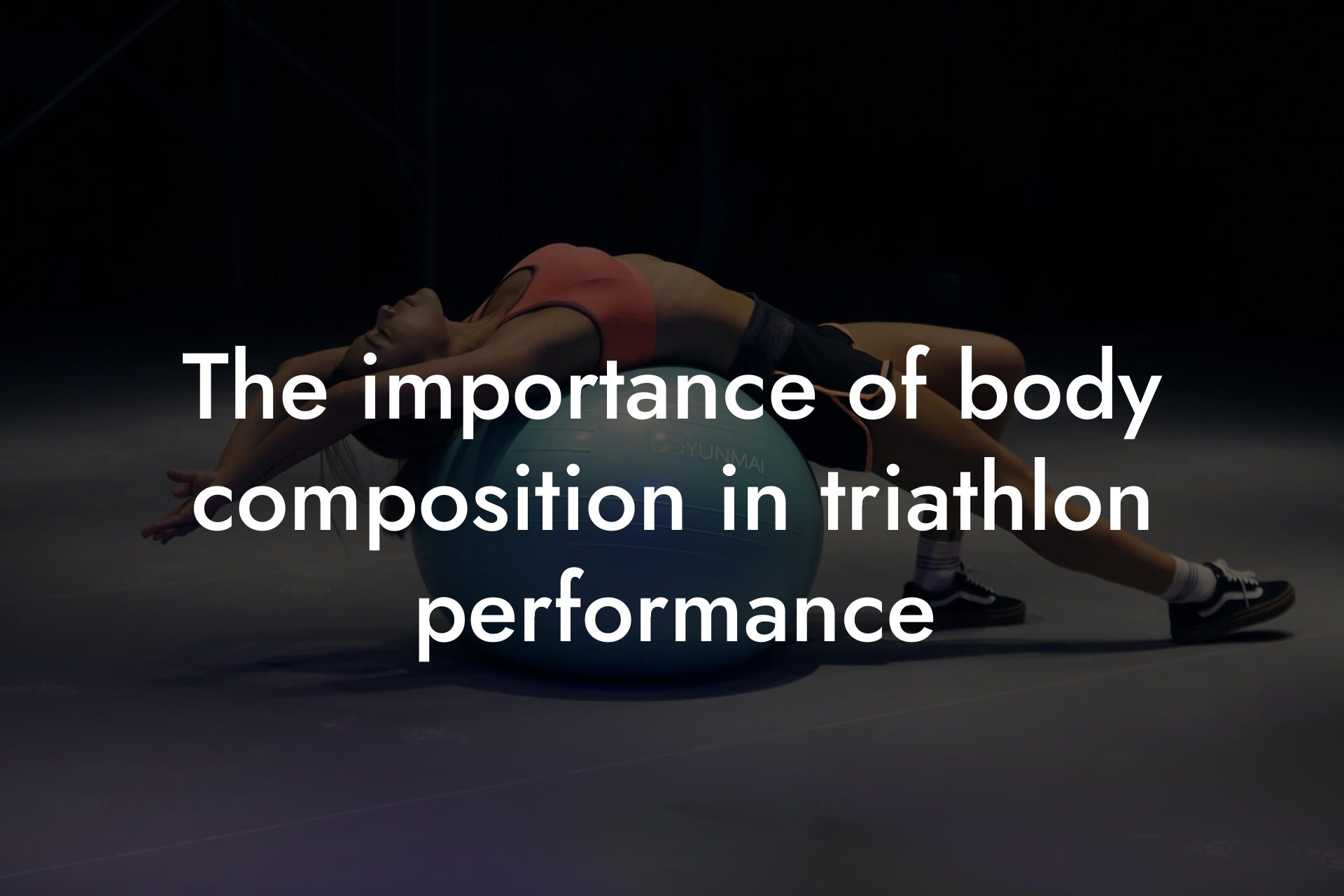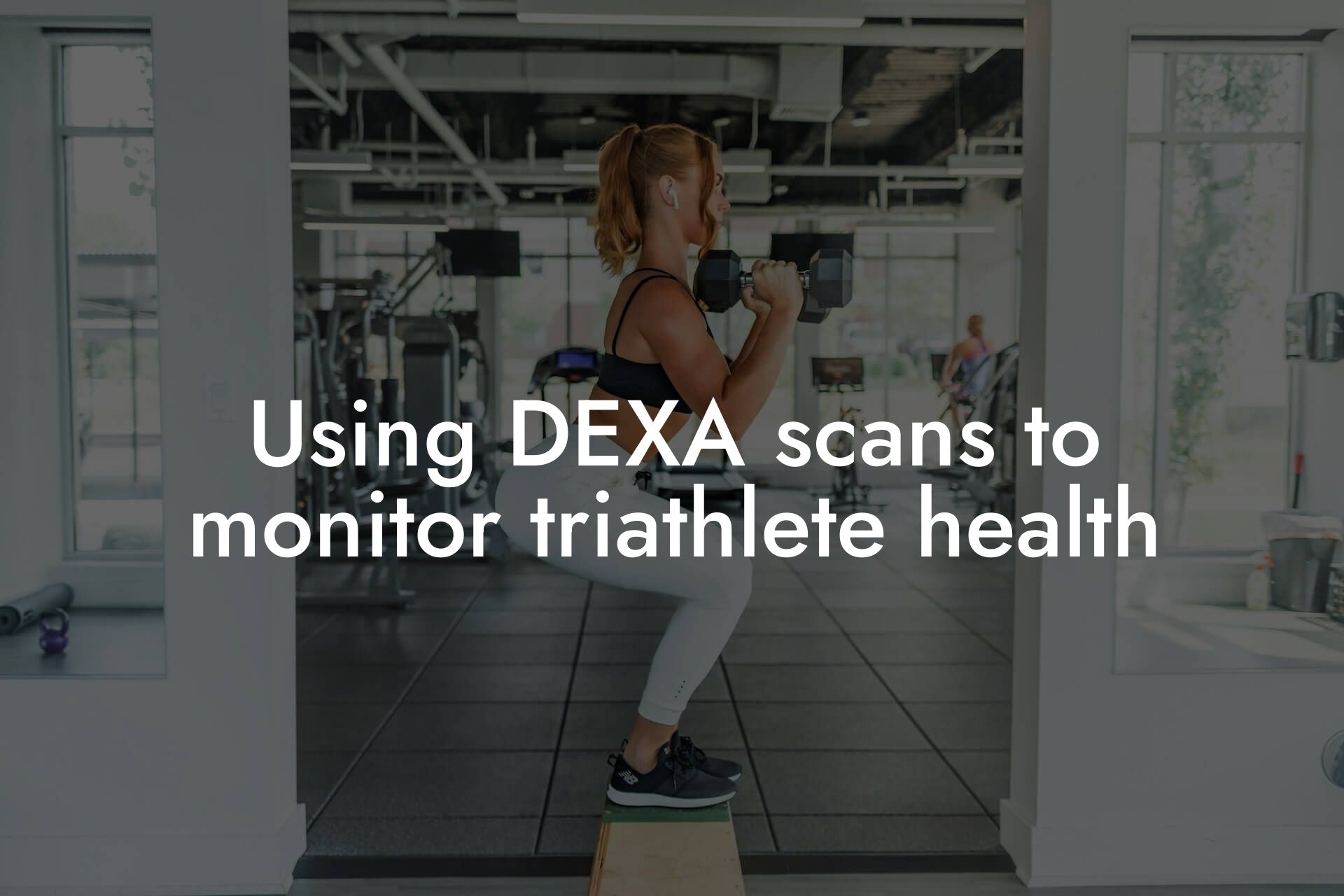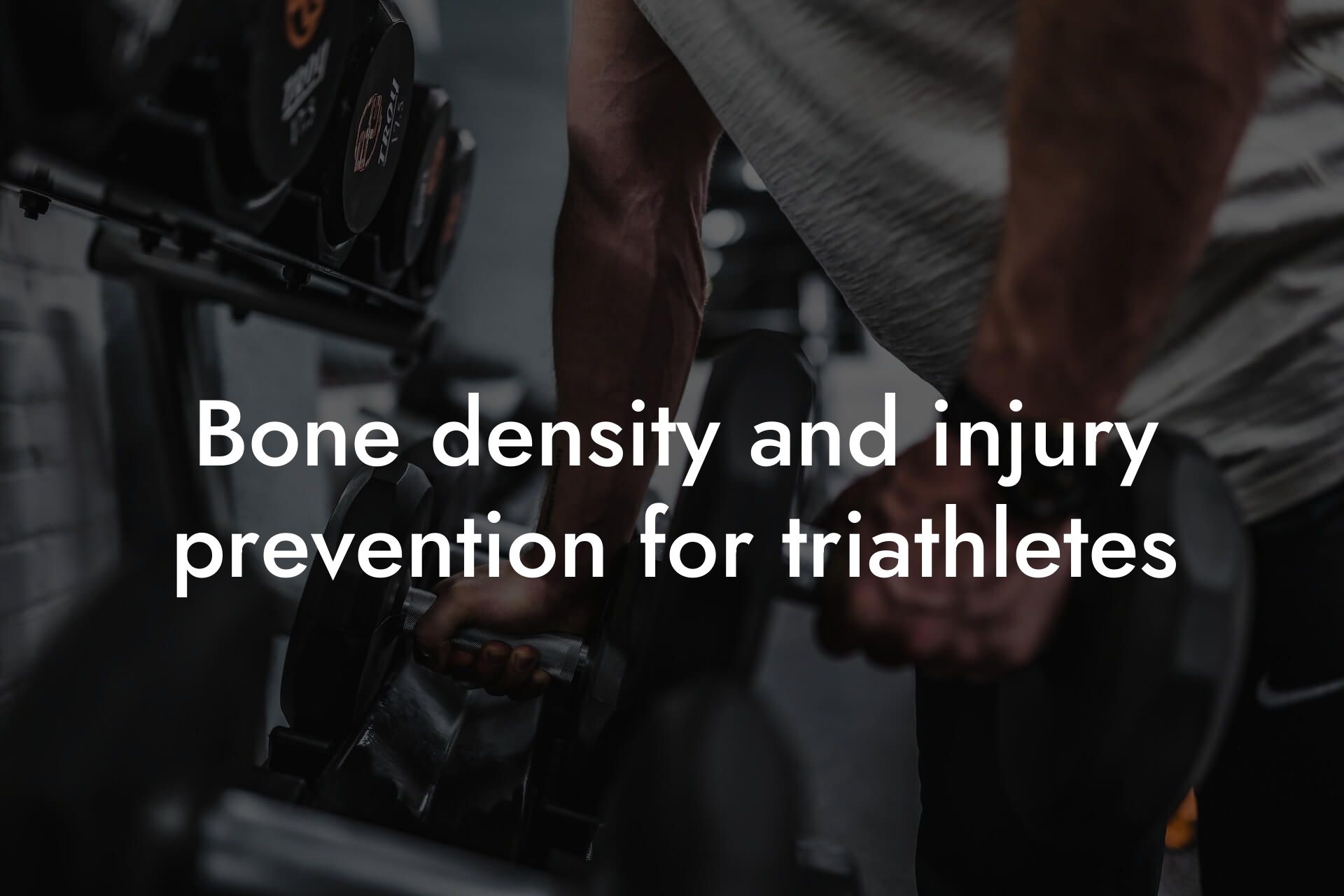As a high-earning professional, you understand the importance of optimizing your physical performance to achieve success in your career and personal life. As a triathlete, you know that nutrition plays a critical role in your training and competition. A well-planned nutrition strategy can make all the difference in your performance, recovery, and overall well-being. In this article, we will provide you with a comprehensive guide on nutrition strategies for triathlon training and competition, tailored specifically for high-earning professionals like yourself.
Table of Contents
Understanding Your Energy Needs
As a triathlete, your energy needs are unique and dependent on several factors, including your training intensity, duration, and frequency. A general rule of thumb is to consume 15-20 calories per kilogram of body weight per day. However, this can vary depending on your individual needs. For example, if you're a 70kg athlete, you may require 1050-1400 calories per day. It's essential to work with a sports dietitian or a healthcare professional to determine your specific energy needs.
Macronutrient Balance
A well-balanced diet for triathlon training and competition should consist of the right mix of carbohydrates, protein, and fat. Here's a general breakdown of the recommended macronutrient ratios:
* Carbohydrates: 55-65% of daily calories (focus on complex carbs such as whole grains, fruits, and vegetables)
* Protein: 15-20% of daily calories (focus on lean protein sources such as lean meats, fish, eggs, dairy, and plant-based options)
* Fat: 20-25% of daily calories (focus on healthy fats such as nuts, seeds, avocados, and olive oil)
Hydration Strategies
Adequate hydration is critical for optimal performance during triathlon training and competition. Aim to drink at least 8-10 glasses of water per day, and make sure to drink water or a sports drink during exercise to replace lost electrolytes. Here are some additional hydration strategies:
* Drink 17-20 ounces of water 2-3 hours before exercise
* Drink 8-10 ounces of water 10-15 minutes before exercise
* Drink 8-10 ounces of water every 10-15 minutes during exercise
Fueling for Training and Competition
Fueling for triathlon training and competition requires a strategic approach to ensure you're meeting your energy needs. Here are some general guidelines:
* For training sessions lasting less than 60 minutes, focus on carbohydrate-rich snacks such as energy bars, bananas, or energy chews
* For training sessions lasting 60-120 minutes, consume a balanced meal or snack that includes carbohydrates, protein, and fat
* For training sessions lasting more than 120 minutes, consume a meal or snack that includes complex carbohydrates, lean protein, and healthy fats
* During competition, aim to consume 30-60 grams of carbohydrates per hour, and make sure to stay hydrated by drinking water or a sports drink
Electrolyte Management
Electrolytes play a critical role in maintaining proper hydration and nerve function during exercise. Here are some tips for electrolyte management:
* Consume electrolyte-rich foods such as bananas (potassium), avocados (potassium), and nuts (magnesium)
* Use electrolyte supplements or tablets during exercise to replace lost electrolytes
* Make sure to consume electrolyte-rich drinks such as sports drinks or coconut water during and after exercise
Recovery Nutrition
Recovery nutrition is critical for optimal performance and adaptation after exercise. Here are some general guidelines:
* Consume a meal or snack that includes carbohydrates and protein within 30-60 minutes after exercise
* Aim to consume 1-1.5 grams of carbohydrates per kilogram of body weight within 30-60 minutes after exercise
* Include anti-inflammatory foods such as omega-3 rich foods, turmeric, and ginger in your recovery nutrition plan
Periodized Nutrition
Periodized nutrition involves tailoring your nutrition plan to your specific training phase. Here are some general guidelines:
* During the base training phase, focus on building your endurance by consuming a high-carbohydrate diet
* During the build phase, focus on building your intensity by consuming a balanced diet that includes carbohydrates, protein, and fat
* During the taper phase, focus on reducing your training volume and intensity by consuming a lower-carbohydrate diet and increasing your protein intake
Body Composition and DEXA Scanning
As a high-earning professional, you understand the importance of tracking your body composition to optimize your physical performance. DEXA scanning is a valuable tool that provides a comprehensive assessment of your body composition, including your bone density, lean mass, and body fat percentage. By tracking your body composition, you can make data-driven decisions about your nutrition and training plan to optimize your performance.
At Tano Performance Group, we offer DEXA scanning services to help you track your body composition and optimize your physical performance. Our team of experts will work with you to develop a personalized nutrition and training plan tailored to your specific needs and goals.
In conclusion, nutrition strategies for triathlon training and competition require a comprehensive approach that takes into account your individual energy needs, macronutrient balance, hydration strategies, fueling for training and competition, electrolyte management, recovery nutrition, and periodized nutrition. By incorporating these strategies into your training plan, you can optimize your physical performance and achieve success in your career and personal life. Remember to track your body composition using DEXA scanning to make data-driven decisions about your nutrition and training plan.
Frequently Asked Questions
What are the key nutrition principles for triathlon training and competition?
When it comes to triathlon training and competition, proper nutrition plays a crucial role in optimizing performance. The key principles to focus on include consuming a balanced diet that provides adequate energy, staying hydrated, and fueling your body with the right nutrients at the right time. Additionally, it's essential to periodize your nutrition plan to match your training phases, and to practice your nutrition strategy during training to ensure it works for you on race day.
How many calories do I need to consume during triathlon training?
The number of calories you need to consume during triathlon training varies depending on your individual energy needs, which are influenced by factors such as your body weight, training intensity, and duration. A general rule of thumb is to consume 15-20 calories per kilogram of body weight daily, with a macronutrient breakdown of 2-3 grams of carbohydrates, 1.2-1.6 grams of protein, and 0.5-1 gram of fat per kilogram of body weight.
What are the best sources of carbohydrates for triathletes?
As a triathlete, it's essential to focus on complex carbohydrates that provide sustained energy release. The best sources of carbohydrates include whole grains such as brown rice, quinoa, and whole wheat bread, as well as fruits, vegetables, and legumes. Additionally, sports-specific products such as energy gels, chews, and bars can provide a convenient source of carbohydrates during long training sessions and competitions.
How much protein do I need to consume during triathlon training?
Adequate protein intake is crucial for muscle repair and recovery during triathlon training. Aim to consume 1.2-1.6 grams of protein per kilogram of body weight daily, spread out over 3-5 main meals and 2-3 snacks. Good sources of protein include lean meats, fish, eggs, dairy products, legumes, and plant-based protein powders.
What is the role of fat in a triathlete's diet?
Fat is an essential macronutrient that provides energy, supports hormone production, and aids in the absorption of vitamins. As a triathlete, aim to consume 0.5-1 gram of fat per kilogram of body weight daily, with a focus on healthy fats such as nuts, seeds, avocados, and olive oil.
How can I stay hydrated during triathlon training and competition?
Adequate hydration is critical for optimal performance during triathlon training and competition. Aim to consume 17-20 ounces of fluid 2-3 hours before exercise, and 7-10 ounces every 10-15 minutes during exercise. Additionally, monitor your urine output and color to ensure you're staying hydrated, and consider using a hydration tracking app or device to help you stay on top of your hydration needs.
What are the best hydration products for triathletes?
As a triathlete, it's essential to choose hydration products that provide the right balance of electrolytes, carbohydrates, and fluids. Look for products that contain sodium, potassium, magnesium, and calcium, and aim to consume 300-600 milligrams of sodium per liter of fluid. Some popular hydration products for triathletes include sports drinks, electrolyte tablets, and hydration powders.
How can I fuel my body during long triathlon training sessions?
Fueling your body during long triathlon training sessions is critical for optimal performance. Aim to consume 30-60 grams of carbohydrates per hour, spread out over 15-30 minute intervals. Additionally, consider using sports-specific products such as energy gels, chews, and bars, and experiment with different fueling strategies during training to find what works best for you.
What are the best snacks for triathletes?
As a triathlete, it's essential to choose snacks that provide a boost of energy, support recovery, and are easy to digest. Some popular snack options for triathletes include bananas, energy bars, nuts, seeds, dried fruits, and sandwiches. Additionally, consider using sports-specific products such as energy chews, gels, and bars, and experiment with different snack options during training to find what works best for you.
How can I recover nutritionally after a triathlon training session?
Nutritional recovery after a triathlon training session is critical for optimal performance. Aim to consume a mix of carbohydrates and protein within 30-60 minutes after exercise, with a ratio of 3:1 or 4:1 carbohydrates to protein. Additionally, consider using sports-specific products such as recovery drinks, bars, and powders, and experiment with different recovery strategies during training to find what works best for you.
What are the best post-workout meals for triathletes?
As a triathlete, it's essential to choose post-workout meals that provide a mix of carbohydrates and protein to support recovery. Some popular post-workout meal options for triathletes include grilled chicken with sweet potatoes, salmon with quinoa and vegetables, and turkey sandwiches with avocado and whole wheat bread. Additionally, consider using sports-specific products such as recovery drinks and powders, and experiment with different meal options during training to find what works best for you.
How can I periodize my nutrition plan for triathlon training?
Periodizing your nutrition plan for triathlon training involves adjusting your macronutrient ratios, calorie intake, and fueling strategies to match your training phases. During base training, focus on building your endurance with a high-carbohydrate diet. During build training, increase your protein intake to support muscle growth and repair. During taper training, reduce your calorie intake and focus on carbohydrate loading to optimize performance.
What are the key nutrition mistakes triathletes make?
Some common nutrition mistakes triathletes make include failing to periodize their nutrition plan, not fueling adequately during training, and neglecting to stay hydrated. Additionally, many triathletes make the mistake of trying new foods or fueling strategies on race day, which can lead to gastrointestinal distress and poor performance.
How can I avoid gastrointestinal distress during triathlon training and competition?
To avoid gastrointestinal distress during triathlon training and competition, it's essential to experiment with different foods and fueling strategies during training, and to avoid trying new things on race day. Additionally, consider using sports-specific products such as anti-inflammatory supplements, probiotics, and gut-friendly foods to support gut health.
What are the benefits of working with a sports dietitian for triathlon training?
Working with a sports dietitian can provide numerous benefits for triathletes, including personalized nutrition planning, optimized fueling strategies, and improved performance. A sports dietitian can also help you develop a nutrition plan that meets your individual needs and goals, and provide ongoing support and guidance throughout your training.
How can I stay motivated to follow my nutrition plan during triathlon training?
Staying motivated to follow your nutrition plan during triathlon training can be challenging, but there are several strategies that can help. Consider setting specific, measurable, and achievable goals, and tracking your progress along the way. Additionally, find a training buddy or join a triathlon community to provide support and accountability, and reward yourself for reaching your goals.
What are the key nutrition considerations for vegetarian and vegan triathletes?
As a vegetarian or vegan triathlete, it's essential to pay close attention to your protein intake, iron levels, and vitamin B12 status. Consider working with a sports dietitian to develop a personalized nutrition plan that meets your individual needs and goals, and focus on consuming a variety of plant-based protein sources, iron-rich foods, and vitamin B12-fortified products.
How can I optimize my body composition for triathlon training?
Optimizing your body composition for triathlon training involves focusing on a healthy balance of muscle mass, body fat, and bone density. Consider working with a sports dietitian to develop a personalized nutrition plan that supports your body composition goals, and focus on consuming a balanced diet that provides adequate protein, healthy fats, and complex carbohydrates.
What are the benefits of tracking my nutrition and training data for triathlon training?
Tracking your nutrition and training data for triathlon training can provide numerous benefits, including optimized performance, improved recovery, and reduced risk of injury. Consider using a training log or app to track your training data, and a nutrition tracking app or spreadsheet to monitor your nutrition intake.
How can I stay fueled and hydrated during long car rides or travel for triathlon training?
Staying fueled and hydrated during long car rides or travel for triathlon training can be challenging, but there are several strategies that can help. Consider packing healthy snacks and meals, bringing a refillable water bottle, and using a hydration tracking app or device to monitor your fluid intake.
What are the key nutrition considerations for triathletes with food allergies or intolerances?
As a triathlete with food allergies or intolerances, it's essential to pay close attention to your nutrition plan and avoid foods that can trigger adverse reactions. Consider working with a sports dietitian to develop a personalized nutrition plan that meets your individual needs and goals, and focus on consuming a variety of safe and healthy food options.
How can I use nutrition to support my immune system during triathlon training?
Supporting your immune system during triathlon training is critical for optimal performance. Consider consuming a diet rich in fruits, vegetables, whole grains, and lean protein sources, and focus on staying hydrated and getting adequate sleep. Additionally, consider using sports-specific products such as immune-boosting supplements and probiotics to support immune function.
What are the benefits of incorporating anti-inflammatory foods into my nutrition plan for triathlon training?
Incorporating anti-inflammatory foods into your nutrition plan for triathlon training can provide numerous benefits, including reduced muscle soreness, improved recovery, and optimized performance. Consider consuming a diet rich in anti-inflammatory foods such as fatty fish, turmeric, ginger, and berries, and focus on staying hydrated and getting adequate sleep.
Here are some related articles you might love...
- The importance of body composition in triathlon performance
- Using DEXA scans to monitor triathlete health
- Bone density and injury prevention for triathletes
- Recovery techniques for triathletes after races
- Balancing training for swimming, cycling, and running
- Strength training for triathletes to improve overall performance
- Off-season training strategies for triathletes
- The role of lean muscle mass in triathlon events
- Reducing body fat for better endurance in triathlons
Zak Faulkner
Zak Faulkner is a leading authority in the realm of physical health and body composition analysis, with over 15 years of experience helping professionals optimise their fitness and well-being. As one the experts behind Tano Performance Group, Zak has dedicated his career to providing in-depth, science-backed insights that empower clients to elevate their physical performance and overall health.
With extensive knowledge of DEXA technology, Zak specializes in delivering comprehensive body assessments that offer precise data on body fat, muscle mass, bone density, and overall physique. His expertise enables individuals to make informed decisions and achieve their fitness goals with accuracy and confidence. Zak’s approach is rooted in a deep understanding of human physiology, combined with a passion for helping clients unlock their full potential through personalised strategies.
Over the years, Zak has earned a reputation for his commitment to excellence, precision, and client-focused service. His guidance is trusted by top professionals who demand the best when it comes to their health. Whether advising on fitness programs, nutritional strategies, or long-term wellness plans, Zak Faulkner’s insights are a valuable resource for anyone serious about taking their health and fitness to the next level.
At Tano Performance Group, Zak continues to lead our Content Team revolutionising how professionals approach their physical health, offering unparalleled expertise that drives real results.




